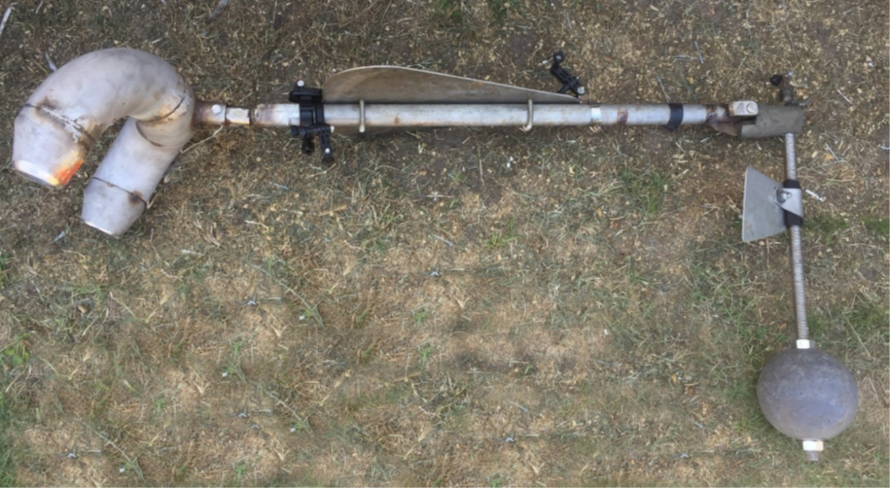
Underwater setter for a manually baited bottom longliner; photograph from the report
David Goad (Via Maris Ltd, Papamoa, New Zealand) and colleagues have reported to the Conservation Service Programme of New Zealand’s Department of Conservation on research conducted on project BCBC2018-01 Development of underwater line setters for use in bottom longline fisheries.
The report’s abstract follows:
“Two similar designs for setting manually baited bottom longlines underwater were developed and improved over the course of 13 trips to sea on three snapper longline vessels.
Both designs employed a similar concept with a towed wheel or guide used to force the mainline to a depth of 7 – 10 m, approximately 20 m behind the vessel. The setters were held at depth using a lead weight, and a hinged arm and paravane were used to provide stability and to separate the tow cable from the longline.
Matching snood clip and wheel design so that hooks were guided beside the wheel showed promise, though further work is needed to achieve this consistently and to reliably deploy floats and weights.
The setter with a guide was improved iteratively and sanma and squid baits were successfully deployed at depth. Pilchard baits were more fragile and loss rates, even before entering the setter, were unacceptably high.
Initially, gear was deployed at high mainline tension as this provided better angles of attack for the mainline entering the setter, greater mainline retention, and deeper deployment depths at speed. However, setting baits at depth with high mainline tension returned lower catch rates and higher bait return rates than gear set normally, with minimal mainline tension. Deploying gear through the setter with a guide at low mainline tension improved catch rates but produced more curvature in the mainline between the vessel and the setter, which required some trade off in speed and achievable depth.
Further work is necessary to accurately measure and control mainline tension, and to investigate optimal setter configuration to maximise deployment depth, setting speed, and catch rates at low mainline tension.
Underwater setting has the potential to allow fishers to reduce risk to birds and meet government mitigation standards by settings lines below 10 m depth within 50 m of the stern of the vessel, without substantially altering fishing operations.”
Reference:
Goad, D., Kellian, D. & Kiddie, B. 2020. Development of underwater line setters for use in bottom longline fisheries. BC2018-01 Final Report Prepared for the Department of Conservation by Vita Maris. [Papamoa: Vita Maris]. 41 pp.
John Cooper, ACAP Information Officer, 04 November 2020

 Español
Español  English
English  Français
Français